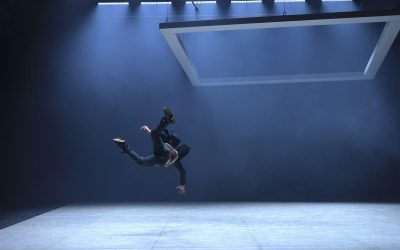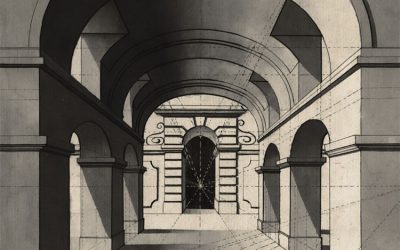by Michael Billington | 4 October, 2007
★★★★☆
theguardian.com
“Wave goodbye to your friends,” one is enjoined at the start of Punchdrunk’s latest site-sympathetic extravaganza, based on the works of Edgar Allan Poe. Donning a white mask and a black cloak, I found myself propelled on a labyrinthine journey through BAC that was simultaneously intriguing, mystifying and exhausting. Not having seen the company’s famous Faust, I greatly enjoyed the experience but without feeling I had glimpsed the future of theatre.
What impressed me most about Felix Barrett’s direction and design was the total transformation of this former Victorian town hall into a place of gothic strangeness. Enter a darkened study and you find every detail is correct, down to the guttering candle, ancient newspaper and stub-filled ashtray. Another room, dominated by faded red banquettes and swagged velvet curtains, is a heady mix of bordello and opium den. As an art installation evoking a lost world, the show is immaculately detailed.
But what of the dramatic action? Drawing on nine of the American fabulist’s mysterious tales, it offers what you might call a theatrical Poe-pourri. I found myself constantly encountering The Fall of the House of Usher, with the demented Roderick rushing about in a fine frenzy, and his prematurely buried sister rising from her tomb to ascend the town hall’s marble steps. Later I discovered echoes of The Black Cat and was drawn into a room where a beady-eyed narrator recounted a chilling story about memory loss. Eventually all the spectators come together for the title story’s climactic danse macabre
I would enter only two caveats. The evening’s appeal is almost entirely sensory: it leaves the heart and mind untouched. And, whereas the joy of most theatre is that one participates in a collective experience, here the stress is on individually determined journeys. It is, in fact, a relief to break off, discard one’s sweat-inducing mask and enter a simulated music hall where one sits with others to watch mind-reading acts and listen to old songs. But the whole event is exuberantly performed by a committed company. Maxine Doyle’s choreography of the final scene has a hectic vitality, and the design team do a superlative job. I still see this kind of magical mystery tour as an alternative to, rather than a substitute for, conventional drama, but, at its best, the evening eerily embodies Poe’s twilit world of madness, cruelty and premature confinement.
Read the article at theguardian.com



